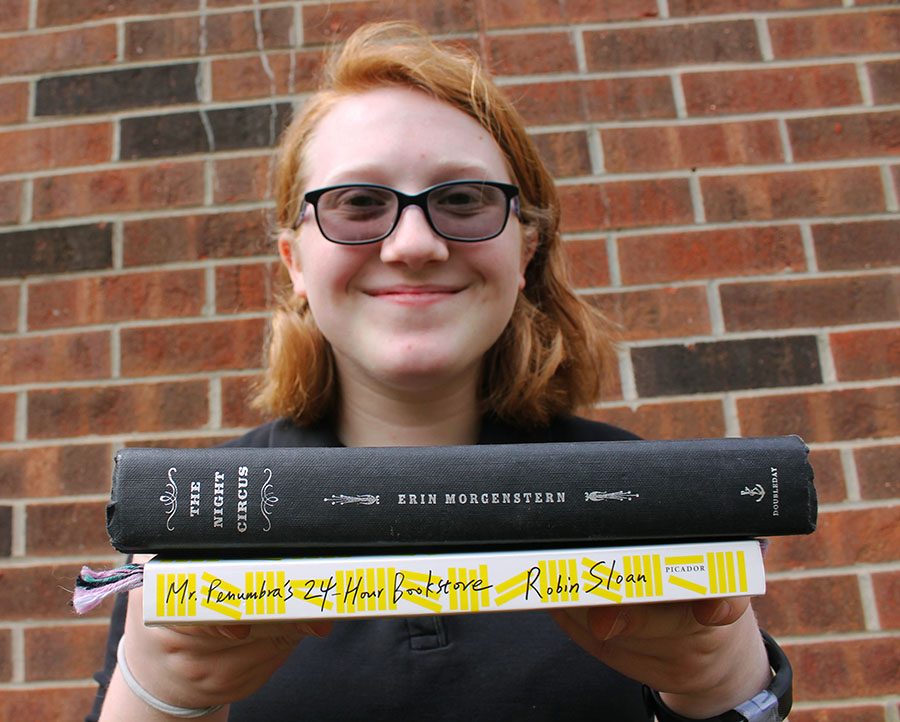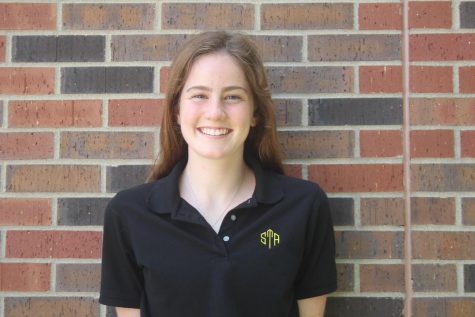Here’s to the seekers, the contemplators, the dreamers, the teachers: the readers
In the world of high school, rife with social and academic distractions, reading for pleasure can sink low on a list of priorities. The Dart explores some of the students who’ve put it at the top and the teachers who inspire and encourage it.
March 19, 2017
A worn copy of Harry Potter and the Order of the Phoenix rests idly beside her bed, fat with dog-eared corners and a cracked spine that reveals years of gentle love. A stack of paperbacks waiting to be read sits on her desk, but they’ll have been explored by the end of the month.
At 3:20 p.m., STA sophomore Ellery Stubbers sets her backpack down in the corner of her mudroom and opens up a book from the top of the stack. She reads for about half an hour and then begins her homework around 4 p.m. After everything’s been read and printed and scrawled over for school, she’ll pick her book back up again and read while TV shows banter in the background for another two hours or until the night is over.
Stubbers averages about two or three books a week. In the dominated world of high school, she’s among a small population who read for pleasure. But she’s not alone.
18-year STA librarian Jackie Hershewe is moderator of the STA Book Club and has been passionate about books since visiting the library as a little girl. A member of the oligarchy that runs Hershewe’s club, junior Charlotte Sturr makes time for reading whenever she can, carrying on a family tradition. English teacher Kelly Fast grew up going to the library near his parents’ office every day after school and has allowed that passion to continue shaping his life and hobbies, especially with exploring the classics. The seekers, the contemplators, the dreamers and the teachers are the readers.
“I started reading when I was a kid and I just really got into it,” Sturr said. “My family also loves reading, so it’s just kind of something that started up young.”
She and her sister share overflowing bookcases. Her parents recently bought two new bookcases to make a nook upstairs. Practically everyone in her family has their library card numbers memorized. And she knows her own books so well that if she’s wanting Jane Austen or Agatha Christie, she knows exactly where to look in the stacks under beds and containers in the basement.
One of the main reasons Sturr reads is because it allows her to jump into another world.
“When I read, I can’t hear anything around me,” she said. “Sometimes when I’m in a loud classroom, I just start reading and someone will talk to me and I won’t hear it. I just lose track of time.”
Sturr makes time for one or two books a month, depending on how busy her schedule is, and prefers reading over watching television.
“Reading has inspired me to think differently,” Sturr said. “Some books have to do with political situations – science fiction and all that – and you kind of look at things in different ways throughout life. A lot of reading shapes who I am. When you’ve been reading for a while, it’s kind of who you are.”
Both Sturr and Stubbers echo similar sentiments about using the public library: they typically loan out books they haven’t read before and only buy their favorites from a bookseller. Stubbers even uses an online library overdrive that operates much like a physical public library to check out books on her Kindle.
“If I know a book that I really, really am going to like, and I really want, then I’ll buy it,” she said. “But if it’s a book that I’m not sure I’ll be completely able to finish, then I have an online library and I’ll get it on there.”
English teacher Kelly Fast also fostered his love of reading at the library, where he would spend at least an hour every day after school while his parents worked.
He often reads classics by authors like James Joyce and Faulkner, but he pauses when he has to name his favorite. When he was in high school, it was Joseph Heller’s Catch 22. Now he regularly reads Dante’s Divine Comedy, “a different kind of favorite.”
“I think that reading makes you more empathetic,” Fast said. “Even in fiction, you can come to understand characters and situations and it makes you, in life, more empathetic to other people and their situations. I think in school, the more you read outside of class, the easier the books we read in class are, the better your vocabulary, the better writer you are.”
Hershewe shares Fast’s views on the intellectual benefits of reading.
“Reading for pleasure does have some benefits as far as improving your vocabulary and your understanding of other people and world issues,” she said. “There’s unseen benefits from not just the pleasure of reading and the story, but you broaden your horizons.”
Fast hopes that his students can fall in love with reading.
“I wish all students read more,” he said. “I think it’s good for them. It’s always sad to hear when students say they don’t read anything but books for school, or that they don’t even really read those.”
For students who would like to be more engaged in reading for pleasure, Hershewe believes that it’s a matter of creating a time frame, establishing a habit and finding an engaging book.
“Reading a book that you don’t like will never help you decide that you want to read, but if you can find a book [where] the storyline really speaks to you and is something that you like, then you’ll make time,” Hershewe said. “Whether it’s just asking for suggestions from your friends and finding something that is compatible with what you like, I think that’s a good way to start the habit.”




